Understanding Crossword Clue: Unlocking the Secrets Behind Every Puzzle
Table of Contents
Introduction
Crossword puzzles are a fun and exciting way to challenge your brain. Many people enjoy them because they help improve your vocabulary, problem-solving skills, and memory. However, understanding crossword clues can be tricky at first. Sometimes the clues can be confusing, and you might feel like giving up. But don’t worry! With a little practice, you can learn how to solve even the most difficult clues.
Understanding crossword clue means figuring out what the clue is trying to tell you. Some clues are easy, and some are harder. They might ask for a direct meaning, or they might use tricks like wordplay. If you’re new to crosswords, don’t get discouraged if it feels tough at first. Over time, you’ll start seeing patterns and get better at solving them.
The more you practice, the easier it will become to understand crossword clues. You’ll start to recognize common types of clues and how to solve them. It’s just like learning a new game – the more you play, the better you get. So, let’s dive into some helpful tips to understand crossword clues and start solving them with confidence!

What is a Crossword Clue? A Beginner’s Guide to Understanding Crossword Clue
A crossword clue is a hint or a description that helps you fill in a word in a crossword puzzle. The puzzle consists of a grid with empty squares, and your goal is to find the correct words to fill those spaces. Each word you need to find is given as a clue, which can be a simple definition, a wordplay hint, or even a puzzle within itself. Understanding how to approach these clues is essential to solving crosswords efficiently.
For a beginner, understanding crossword clue might seem tricky at first. Each clue will guide you toward a specific word, but the way it’s worded can sometimes make it hard to understand. Some clues will be direct and simple, such as “A sweet fruit” (5 letters), which points to “Apple.” Others may use wordplay, puns, or other creative hints that require a bit of thinking outside the box. Learning to recognize these different types of clues will help you solve puzzles more easily.
In a typical crossword, you will find two kinds of clues: across and down. Each clue leads to a word that fits into the corresponding horizontal or vertical space in the grid. The number next to each clue tells you how many letters the answer will have. For example, if a clue says “A fruit (4 letters)” and there are four empty squares, the answer could be “Pear.” Getting familiar with the format of crossword puzzles is key to understanding crossword clue.
As you work through the clues, you’ll begin to notice patterns and connections. Some words will have multiple meanings or synonyms, which will help you with more challenging clues. The answers you fill in will also provide letters that help with solving the next clue. This cross-checking process is an important part of crossword puzzle solving and makes understanding crossword clue easier over time. It’s a fun and rewarding activity that gets better with practice.
If you’re new to crossword puzzles, don’t worry if you can’t solve every clue right away. With time and practice, you’ll develop strategies for understanding crossword clues more easily. The key is to stay patient, think carefully about each clue, and keep practicing. Soon enough, you’ll find yourself solving puzzles faster and enjoying them more!
How to Approach a Crossword Puzzle: Key Tips for Understanding Crossword Clue
Approaching a crossword puzzle for the first time can feel overwhelming, but with a few simple strategies, you’ll quickly get the hang of it. One of the first tips for understanding crossword clue is to read through all the clues before you start solving. This will give you a sense of the puzzle and allow you to spot any clues that might be easy to answer right away. Look for short clues or familiar phrases that you can fill in confidently. These easy clues will give you the momentum to tackle the harder ones.
Another important tip is to focus on the across clues first, or whichever ones feel easier. Starting with the simplest clues will help you build a foundation. As you fill in answers, you’ll start to notice how the answers intersect with the down clues. This cross-checking process makes solving puzzles much easier. For example, if you fill in “Cat” (3 letters) for “A small animal,” you’ll have a few letters already in place to help you with other clues. This technique of solving some clues first and using them to solve others is a key part of understanding crossword clue.
It’s also helpful to stay flexible and be open to different interpretations of the clues. Sometimes, crossword clues use wordplay, like puns or hidden meanings. A clue might seem simple at first, but the answer might require you to think in a new way. For example, “A huge meal” could lead to “Feast” or “Binge,” depending on the clue’s phrasing. When understanding crossword clue, think about possible synonyms and different meanings of words. Keeping an open mind will help you solve even the trickiest clues.
Don’t be afraid to leave a clue and come back to it later. If you get stuck on a particular clue, move on to another one. Sometimes, solving other parts of the puzzle will give you the extra letters or hints you need to solve a challenging clue. Remember that crossword puzzles are meant to be fun, so if you’re frustrated, take a break and return with a fresh perspective. With time, you’ll start to feel more comfortable with understanding crossword clue and using these strategies to solve the puzzle.
Finally, practice is the best way to improve. The more you work on crossword puzzles, the better you’ll get at recognizing common patterns and figuring out clues. Don’t worry if you don’t solve every puzzle right away. With practice, you’ll begin to understand the types of clues you’re likely to encounter and how to approach them. So, keep solving, and remember that each puzzle is an opportunity to improve your skills at understanding crossword clue.
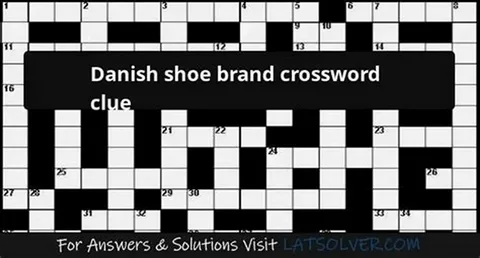
Decoding the Language: Understanding Crossword Clue with Easy Examples
One of the biggest challenges of crossword puzzles is the language used in the clues. Understanding crossword clue involves recognizing how words and phrases can be cleverly disguised or hinted at. Clues can be direct, indirect, or sometimes even tricky, and figuring out the hidden meanings is what makes solving crosswords fun! The key is to decode the language behind each clue, which will help you discover the answer.
For example, a straightforward clue like “A green vegetable (4 letters)” points to “Pea” in a very clear way. Here, the definition “A green vegetable” directly matches the answer. However, crossword clues are often not this simple. You might encounter clues with more subtle language, like “What a dog may do (3 letters).” While it might seem obvious, the answer is likely “Run” because dogs run, not just “Bark.” By understanding how crossword clues use language in tricky ways, you’ll begin to see beyond the obvious.
In addition to straightforward definitions, crossword clues also often involve wordplay. For example, a clue like “A long story (6 letters)” might seem like it’s asking for a “novel,” but the answer could actually be “Tale.” This is a case where the clue is hinting at a synonym rather than the exact meaning of “long story.” Being aware of these small nuances will help you when understanding crossword clue and solving tricky wordplay-based clues.
Crossword puzzles can also include abbreviations, hidden words, or other creative tricks. A clue like “Drinks container (3 letters)” could be referring to “Can,” which is a common container for drinks. Similarly, a clue like “In the sky (3 letters)” might lead to “Air.” The more you practice, the easier it will become to decode the language of crossword clues. You’ll start to recognize these patterns and abbreviations, making the puzzle-solving experience smoother.
When you first begin solving crosswords, don’t get discouraged if some clues seem confusing. Take it slow and keep practicing. Over time, you’ll start to see how crossword clues follow a certain pattern, using both straightforward and creative language. Understanding crossword clue becomes easier as you get more familiar with the different types of clues, wordplay, and hidden meanings. The more you solve, the quicker you’ll be able to decode each clue and find the correct answer.
The Different Types of Crossword Clues and How to Understand Them
Crossword puzzles feature a variety of clue types, each requiring a different approach to solve. Understanding crossword clue involves recognizing these different types and knowing how to tackle each one. Some clues are direct, while others use wordplay or hidden meanings. By familiarizing yourself with the most common types of crossword clues, you’ll be able to solve puzzles more quickly and easily.
One of the simplest types of crossword clues is the definition clue. These clues are straightforward and typically give a clear description of the word you need to find. For example, a clue like “A furry animal (3 letters)” would lead to the answer “Cat.” In this case, the clue is simply defining the answer in a very direct way, making it easy to figure out. As you get better at crossword puzzles, you’ll come across more complex definitions, but they still follow this basic pattern of directly describing the answer.
Another common type of clue is the wordplay clue, where the clue involves puns, anagrams, or other clever tricks. For example, a clue like “Easily fooled (6 letters)” might not lead to an obvious answer at first, but the correct answer could be “Gullible.” Here, the clue is not giving you a direct definition but instead using a clever twist to describe the word. Understanding crossword clue requires you to think beyond the surface and look for clues that play on the meanings or sounds of words.
You’ll also come across clues that involve abbreviations or acronyms. These clues require knowledge of common short forms or letter combinations. For example, “US state abbreviation (2 letters)” might be the clue, and the answer could be “CA” for California. These types of clues can be tricky, especially if you’re unfamiliar with the abbreviations, but with practice, you’ll start recognizing the common ones used in crosswords.
Finally, there are cryptic clues, which are often the most challenging. These clues require a deeper understanding of wordplay and sometimes involve hidden meanings or multiple steps to figure out. For example, the clue “Mixed up animal’s coat (7 letters)” could refer to “Mink,” as it’s an anagram of “animal’s” and a type of coat. Cryptic clues often use subtle tricks, so they can take a little more time and patience to solve. But with enough practice, you’ll start to understand how to break down these more complex clues.
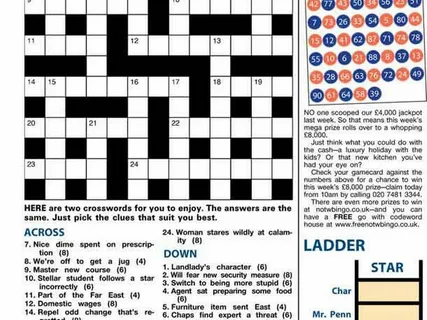
Wordplay in Crossword Clues: How to Spot Hidden Meanings
Wordplay in crossword clues is one of the most fun and challenging aspects of solving puzzles. Understanding crossword clue requires you to recognize when a clue is using a hidden meaning, pun, or other clever twist. These clues don’t always provide a direct definition but instead ask you to think outside the box. Recognizing wordplay clues can take some practice, but once you get the hang of it, you’ll find them more enjoyable to solve.
One common type of wordplay clue involves puns or double meanings. For example, a clue like “Watchful eye (3 letters)” might seem straightforward, but the answer could be “Spy.” Here, the word “watchful” suggests someone who is observing, and “eye” could refer to someone’s role as a “spy” keeping an eye out. When understanding crossword clue, always keep in mind that some words may have multiple meanings, and the clue might use one of those meanings to guide you to the answer.
Another common wordplay trick is the use of anagrams. An anagram involves rearranging the letters of a word or phrase to form a new word. For example, a clue like “Eternal love (7 letters)” could lead to the answer “Romance,” which is an anagram of “man” and “core.” Anagrams can be tricky, but once you spot the hint—often words like “mixed,” “shuffled,” or “jumbled”—you’ll know to look for the letters to rearrange. Understanding crossword clue means learning to recognize these subtle cues in the clues.
Sometimes, clues use homophones, or words that sound the same but have different meanings. For example, a clue like “A country, not a city (5 letters)” might lead you to the answer “Spain.” The word “Spain” sounds like “Spain” (the country) but could also refer to the verb “spane,” meaning to cut or shorten something, suggesting it’s not the city but the country. Homophones can be tricky, but with practice, you’ll learn to recognize them as you solve puzzles.
Lastly, hidden words are a form of wordplay where the answer is hidden within the letters of the clue itself. For example, a clue like “Partial view (4 letters)” might hide the word “Peek” within the clue. When understanding crossword clue, keep an eye out for clues where the answer is hidden in plain sight, usually by combining parts of the words in the clue. Recognizing these hidden words will improve your puzzle-solving skills and help you move through clues faster.
Common Crossword Clue Strategies for Beginners
If you’re just starting with crossword puzzles, it’s important to know some basic strategies to make solving easier. Understanding crossword clue strategies can help you work through the puzzle step by step, building your confidence. One helpful tip is to start with the short and easy clues first. These clues usually have fewer letters, and the answers are often common words you’ll recognize right away. Starting with these simple clues will give you a sense of accomplishment and make the harder clues seem less intimidating.
Another useful strategy is to look for fill-in-the-blank clues. These are typically easier because they often involve familiar phrases or well-known expressions. For example, a clue like “_____ in the sky” (3 letters) could lead to “Air.” These types of clues provide a lot of helpful hints, and solving them can give you a good foundation for the rest of the puzzle. When understanding crossword clue, always keep an eye out for these types of clues that provide more direct answers.
As you solve the easier clues, start using the filled-in letters to help you solve the harder clues. Crossword puzzles are built in such a way that the answers to the across and down clues intersect, so once you have some answers, you’ll have letters that can help with the other clues. For example, if you solve “A tiny insect (3 letters)” with “Ant,” the letters “A” and “T” might help you with other words. By using the answers you already have, you’ll make it easier to tackle the more difficult clues.
Another key strategy is to keep practicing and developing your knowledge of crossword conventions. Many crossword puzzles use abbreviations, common phrases, or wordplay, so becoming familiar with these patterns will improve your ability to solve clues. For example, “Drinks container” might be “Can,” or “Capital of the USA” might refer to “DC” for Washington, D.C. When understanding crossword clue, recognizing these common patterns will speed up your solving process.
Lastly, don’t be afraid to leave difficult clues for later. Sometimes it’s easy to get stuck on a single clue, but taking a break from it and coming back later with a fresh perspective can help. You may find that solving other parts of the puzzle gives you just the hint you need. Crosswords are meant to be fun, so stay patient and give yourself time to practice these strategies. As you solve more puzzles, you’ll get faster and more confident in understanding crossword clue and applying these strategies.
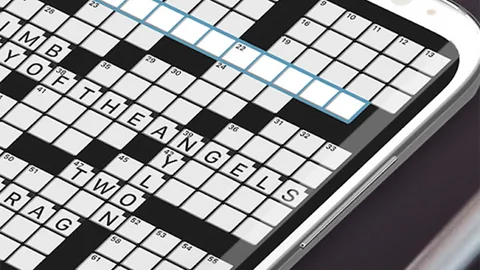
Understanding Crossword Clue: The Role of Definitions in Solving Puzzles
When it comes to crossword puzzles, definitions play a crucial role in understanding crossword clue. These clues provide direct hints about the word you need to find. Often, the clue will describe the answer in a simple and straightforward way, making it easier to spot. For example, a clue like “Large cat (3 letters)” could be referring to “Lion.” In this case, the definition directly tells you what the answer is, making the puzzle-solving process a bit easier. Recognizing these kinds of clues is one of the first steps in becoming a successful crossword solver.
Not all definitions are as simple as they seem, however. Sometimes crossword clues will provide a more subtle or indirect definition. For instance, the clue “Bright star (4 letters)” might actually refer to “Sirius,” which is the name of the brightest star in the night sky. Here, the definition is still pointing you in the right direction, but it’s a bit more specific. Understanding crossword clue requires you to look beyond general ideas and focus on more specific terms or facts hidden within the clue.
In some puzzles, definitions may involve synonyms or related words. For example, a clue like “Fragrant flower (4 letters)” could lead to “Rose,” since “rose” is a type of flower that’s also known for its lovely scent. This shows how crossword clues often rely on the knowledge of related meanings. As you practice solving puzzles, you’ll become better at spotting these subtle relationships between words and their synonyms, which helps you solve clues more efficiently.
Another key to understanding crossword clue is recognizing when the definition is a part of a longer clue or when it’s combined with wordplay. Sometimes, the definition is just one part of the clue, and the rest of the clue might involve some trickery, like an anagram or a homophone. For example, a clue like “Noisy noise (3 letters)” could be a playful definition pointing to the answer “Bam.” In such cases, the definition part of the clue will still give you a solid direction, but you’ll need to apply some other solving skills to find the correct word.
Finally, as you work through crossword puzzles, it’s important to remember that definitions are just one part of the puzzle-solving process. Once you have identified the definition, it’s important to use the intersecting answers to confirm your solution. Understanding crossword clue becomes easier when you learn to combine both your knowledge of definitions and your ability to think critically about the other parts of the clue. The more you solve, the quicker you’ll be able to identify the role of definitions and use them to guide you through the puzzle.
How Length of Words Helps in Understanding Crossword Clue
The length of the word you’re trying to find is an important piece of information when understanding crossword clue. Each crossword puzzle provides the number of letters in the answer as part of the clue, which can help you narrow down your options. For example, if the clue is “A large animal (4 letters),” knowing that the answer has four letters immediately limits your possibilities. The length of the word helps you focus on possible answers that fit that specific number, making the solving process much easier and more efficient.
When you see a clue with a specific number of letters, it can give you hints about the type of word you’re looking for. If a clue is “Very hot (3 letters),” you might consider answers like “Red” or “Hot,” both of which are related to heat and fit the three-letter requirement. The length of the word helps you brainstorm words that are related to the clue, but it also means that you must choose a word that fits both the clue’s definition and the number of letters provided.
In addition to helping you narrow down possible answers, the word length can also reveal certain patterns that make solving easier. For example, if you know that a word has five letters and one of the letters is already filled in, the length helps you think of possible words that match those letters. If you have the word “_I__E” and the clue is “A type of fruit,” the length suggests that the answer could be “Grape,” a five-letter word that fits both the clue and the pattern. By focusing on word length and any known letters, you can often eliminate many incorrect possibilities.
Another helpful strategy is to pay attention to the overall structure of the puzzle. If you know that the answers are crossing each other, the word length of the across and down clues helps you find patterns that make it easier to fill in blanks. For example, if you have an answer with 5 letters that crosses a 3-letter word, knowing the length of the word helps you work through possible combinations that make sense. Understanding crossword clue means using both the length and the intersecting clues to figure out answers more quickly and accurately.
In conclusion, the length of words plays a big role in solving crossword puzzles. It gives you a critical piece of information that helps you focus on the right answers, eliminating possibilities that don’t fit the pattern. Whether you’re solving short or long clues, understanding crossword clue involves recognizing how the length of the answer can guide you to the correct word. As you gain more experience with puzzles, you’ll become quicker at using word length to solve clues more efficiently.
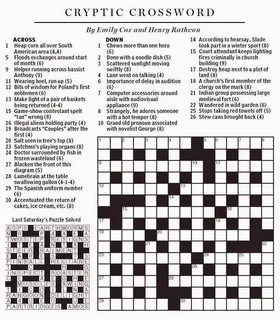
Using Crossword Clue Crosswords to Boost Your Brain Power
Crossword puzzles are not just fun but also a great way to boost your brain power. Understanding crossword clue puzzles can improve your memory, increase your vocabulary, and help you sharpen your problem-solving skills. When you regularly work on crosswords, you engage different parts of your brain, keeping it active and healthy. This mental exercise helps to enhance your cognitive function, making it easier to think clearly and quickly in other areas of your life.
One of the key benefits of solving crossword puzzles is that they help expand your vocabulary. As you tackle different clues, you learn new words and their meanings. For instance, a clue might introduce you to a word you’ve never seen before, and through solving the puzzle, you’ll remember it for future use. Understanding crossword clue often involves encountering unique words that are outside your everyday vocabulary, and this exposure helps you grow your word knowledge in a fun and interactive way.
Crossword puzzles also encourage critical thinking and problem-solving skills. Each clue presents a challenge, and figuring out the answer requires you to think logically, use clues, and connect ideas. For example, if you come across a tricky clue that requires lateral thinking or wordplay, your brain has to work harder to find the solution. Regularly solving puzzles strengthens your problem-solving abilities, which can translate into improved decision-making and creativity in other aspects of life.
In addition to boosting cognitive skills, crosswords also help with memory. While solving, you often need to recall facts or definitions that you’ve learned in the past. This constant mental exercise strengthens your ability to retain and retrieve information. Over time, understanding crossword clue helps you become more adept at remembering details, making you quicker to recall names, dates, or even small facts in everyday situations. The more you practice crosswords, the more you will notice how your memory improves.
Finally, crossword puzzles can reduce stress and improve mental well-being. Taking time to focus on a puzzle allows you to relax and take a break from the worries of daily life. As you immerse yourself in solving clues, your brain gets a break from stress, allowing you to return to your tasks feeling refreshed. The feeling of accomplishment after completing a crossword puzzle also boosts your mood and sense of achievement, contributing to positive mental health.
Mastering Cryptic Crossword Clues: Tips for Better Understanding
Cryptic crosswords are a fun but tricky challenge for many puzzle solvers. Unlike regular crossword puzzles, cryptic clues often involve wordplay, hidden meanings, and misdirection. Understanding crossword clue in cryptic puzzles requires a different approach. Instead of simply providing direct definitions, cryptic clues often combine a definition with other forms of wordplay, such as anagrams or homophones. To master cryptic crosswords, you’ll need to learn to recognize these patterns and think outside the box.
One of the first tips for solving cryptic crossword clues is to break the clue into two parts: the definition and the wordplay. The definition usually appears at the beginning or end of the clue, and it provides a direct hint to the answer. The other part of the clue involves the wordplay, which could be anything from an anagram to a hidden word. For example, in the clue “Silent when calm (4 letters),” the word “calm” could be an anagram indicator, and the answer might be “Mute,” which fits both the definition and the wordplay. Understanding crossword clue in this way helps you focus on the parts that will lead you to the correct answer.
Another important skill for mastering cryptic crossword clues is recognizing common cryptic indicators. These are words that suggest specific types of wordplay. For instance, words like “confused,” “broken,” or “mixed up” often signal that an anagram is involved. Similarly, words like “sounds like” or “heard” indicate that the clue is referring to a homophone. As you practice solving cryptic crosswords, you’ll become familiar with these indicators, making it easier to spot the right techniques to apply. The more you encounter these clues, the better you’ll get at identifying the type of wordplay.
Patience is key when solving cryptic crossword clues. Since they often involve complex wordplay, it’s important not to rush through the puzzle. Instead, take your time to carefully analyze each clue. Sometimes, it’s helpful to solve a few straightforward clues first and use those answers to help you solve the more difficult ones. This can give you the letters you need to crack the tougher cryptic clues. Understanding crossword clue in cryptic puzzles is all about practice, patience, and learning to spot the familiar tricks that cryptic setters use.
Finally, remember that cryptic crosswords are meant to be fun! While they can be challenging, the sense of accomplishment when you finally crack a tough clue is incredibly rewarding. Don’t be afraid to look up answers or practice with simpler cryptic puzzles to build your skills. Over time, understanding crossword clue in cryptic crosswords will become second nature, and you’ll be able to tackle even the trickiest puzzles with confidence. Keep practicing, and before you know it, you’ll be solving cryptic crosswords like an expert!
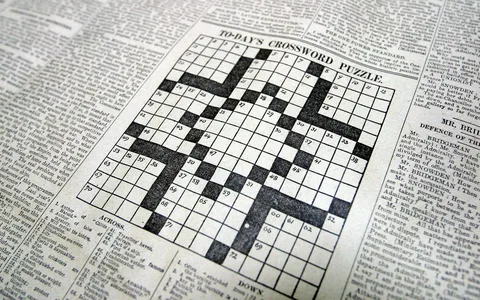
Tools and Resources to Help You with Understanding Crossword Clue
Solving crossword puzzles can sometimes be tricky, but luckily, there are many tools and resources that can make understanding crossword clue easier. Whether you’re a beginner or an experienced solver, these resources can help you sharpen your skills and find the correct answers faster. One of the most popular tools for crossword solvers is the online crossword dictionary. These websites allow you to search for words that fit a given clue, helping you discover possible solutions when you get stuck.
Another useful resource is crossword solver apps. Many crossword apps allow you to input the clue and the number of letters in the word, and they’ll generate a list of possible answers. These apps are great for finding the right answer quickly when you’re stuck, especially if the clue involves obscure or uncommon words. While it’s good to challenge yourself, sometimes using a crossword solver can help you learn new words and improve your solving skills. Understanding crossword clue becomes easier as you use these tools to enhance your word knowledge.
For those looking to improve their solving skills, there are also many books available that focus on crossword puzzle solving techniques. These books often provide strategies for approaching different types of clues, from straightforward definitions to tricky wordplay. They also offer tips on recognizing common crossword patterns and hints for solving cryptic clues. Reading these guides can give you a deeper understanding of crossword clues, helping you solve puzzles more efficiently and enjoyably.
In addition to books and apps, joining online crossword-solving communities can be a great way to improve your skills. Many forums and social media groups dedicated to crossword puzzles allow solvers to discuss clues and share tips. If you’re ever stuck on a particularly challenging clue, these communities can provide valuable insights and suggestions. Engaging with other puzzle solvers can also expose you to different solving methods and strategies, making it easier to develop your own approach to understanding crossword clue.
Lastly, regularly practicing with crossword puzzles is one of the best ways to enhance your ability to understand clues. The more puzzles you solve, the more familiar you become with common clue types and word patterns. Over time, you’ll start to recognize specific clues and their solutions, making future puzzles easier and faster to solve. Whether you prefer print newspapers, online puzzles, or apps, consistent practice is key to becoming an expert crossword solver. By combining practice with the right tools and resources, you’ll quickly improve your ability to understand crossword clue and solve even the toughest puzzles.
Why Practice Makes Perfect in Understanding Crossword Clue
When it comes to solving crossword puzzles, practice is key to becoming a master. Understanding crossword clue can sometimes be difficult, especially for beginners, but with regular practice, you’ll start recognizing patterns and learning new solving techniques. As you solve more puzzles, your brain gets used to the structure and the types of clues you’ll encounter. The more you practice, the quicker and more accurate you become at identifying the right answers, helping you develop a strong solving strategy.
Each crossword puzzle you tackle helps improve your vocabulary. As you encounter new words in clues and solutions, you naturally expand your knowledge. This process of learning new words is gradual, and the more crosswords you complete, the more familiar you become with uncommon words and phrases. Understanding crossword clue gets easier because, over time, you’ll begin to remember certain words and their meanings. This makes future puzzles simpler, as you can recall the answers faster and without hesitation.
Practice also teaches you how to approach different types of clues. Crosswords often contain a mix of straightforward definitions, wordplay, and cryptic clues. By regularly solving puzzles, you’ll begin to understand the tricks used in different clues. Whether it’s recognizing when a clue involves an anagram, a homophone, or a hidden word, your ability to spot these clues improves with time. This makes understanding crossword clue easier because you can instantly identify the type of wordplay being used and apply the right strategy to solve it.
Another benefit of practicing crossword puzzles is that it enhances your problem-solving skills. Solving crosswords is like solving a puzzle or a riddle; it requires logical thinking, pattern recognition, and creative thinking. As you practice, you become better at breaking down complex clues into manageable parts and finding the solution. Over time, your critical thinking skills improve, which helps you solve not just crossword puzzles, but other types of problems in daily life too.
Finally, regular practice with crossword puzzles helps build confidence. In the beginning, some clues might feel overwhelming, but as you solve more puzzles, your confidence grows. Understanding crossword clue becomes second nature, and the sense of accomplishment from finishing a tough puzzle encourages you to keep going. The more you practice, the more enjoyable solving puzzles becomes. So, keep solving, and before you know it, you’ll be solving crossword puzzles like an expert!

Conclusion
In conclusion, understanding crossword clue is a skill that gets better the more you practice. It’s not just about finding the right answers, but also about enjoying the challenge. Every time you solve a crossword, you’re training your brain, improving your vocabulary, and getting better at thinking critically. With time and practice, you’ll start to recognize patterns and clues more easily, making crossword puzzles a fun and rewarding activity.
Remember, it’s okay to get stuck sometimes. Crossword puzzles are meant to be fun and help you learn new things. As you keep practicing, you’ll find that the clues become easier to understand. So, don’t give up! Keep solving puzzles, and soon enough, you’ll be solving even the toughest crossword clues like a pro.
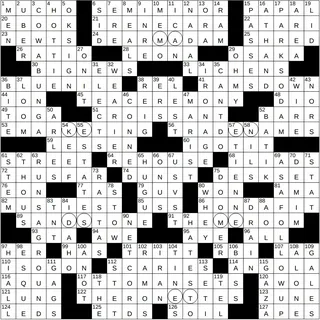


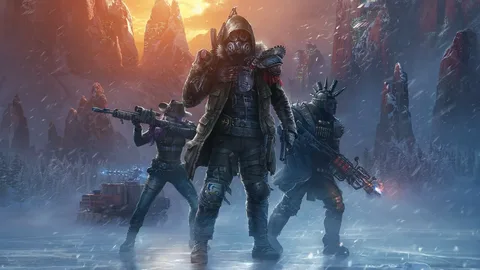




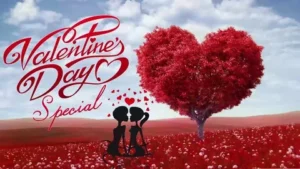
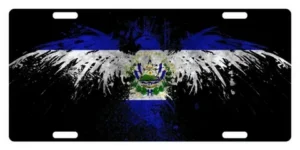



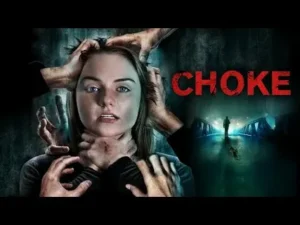
Post Comment